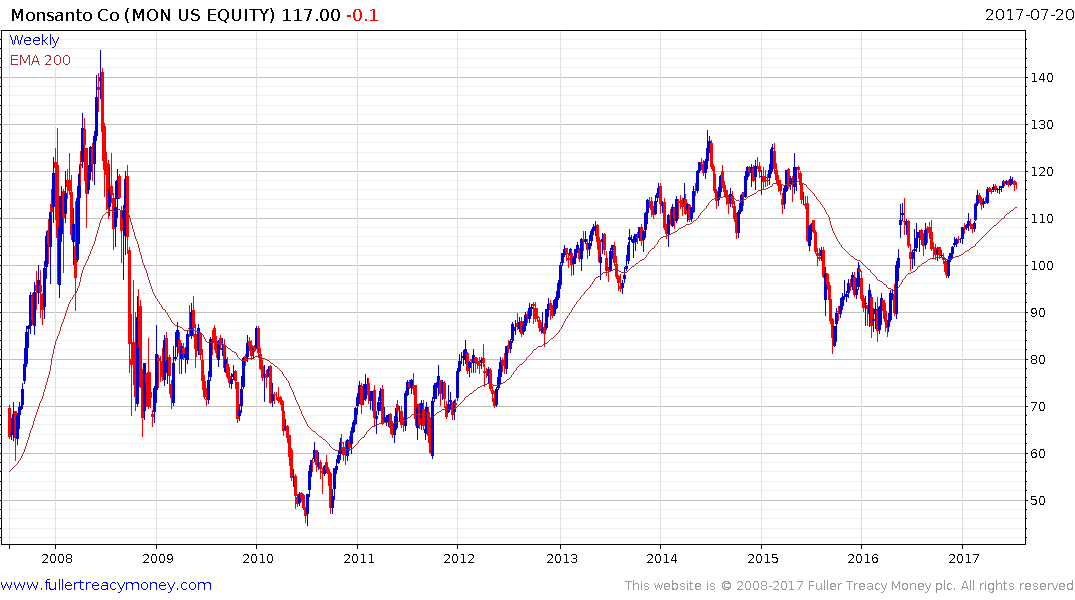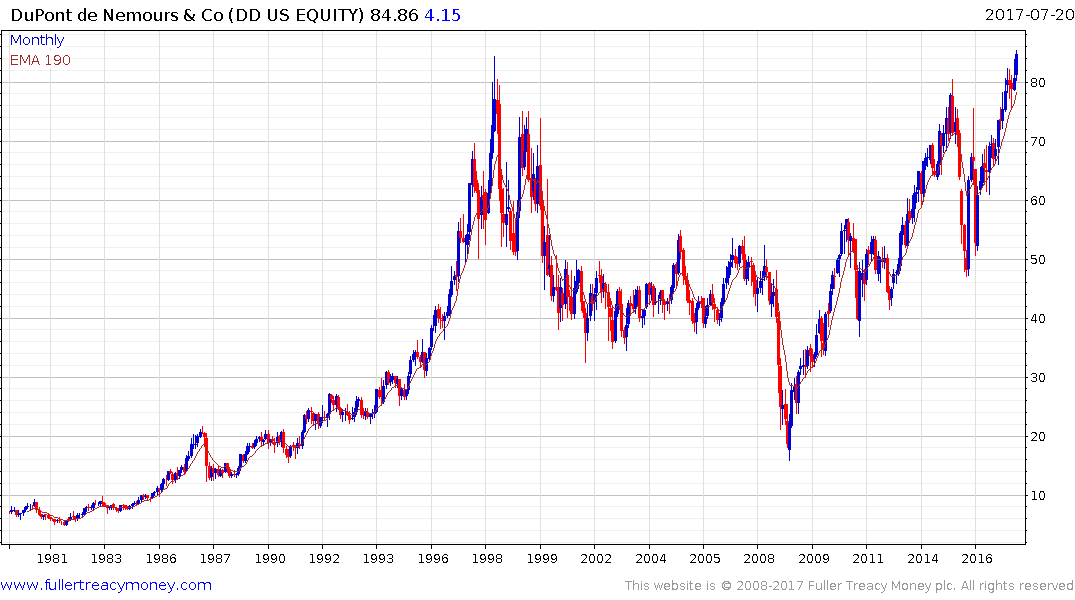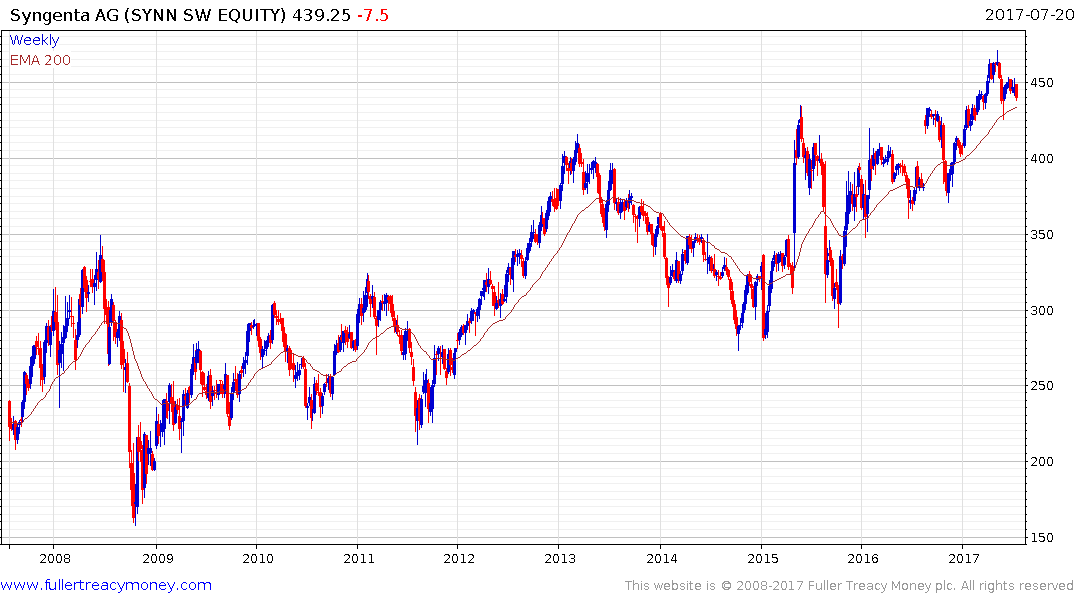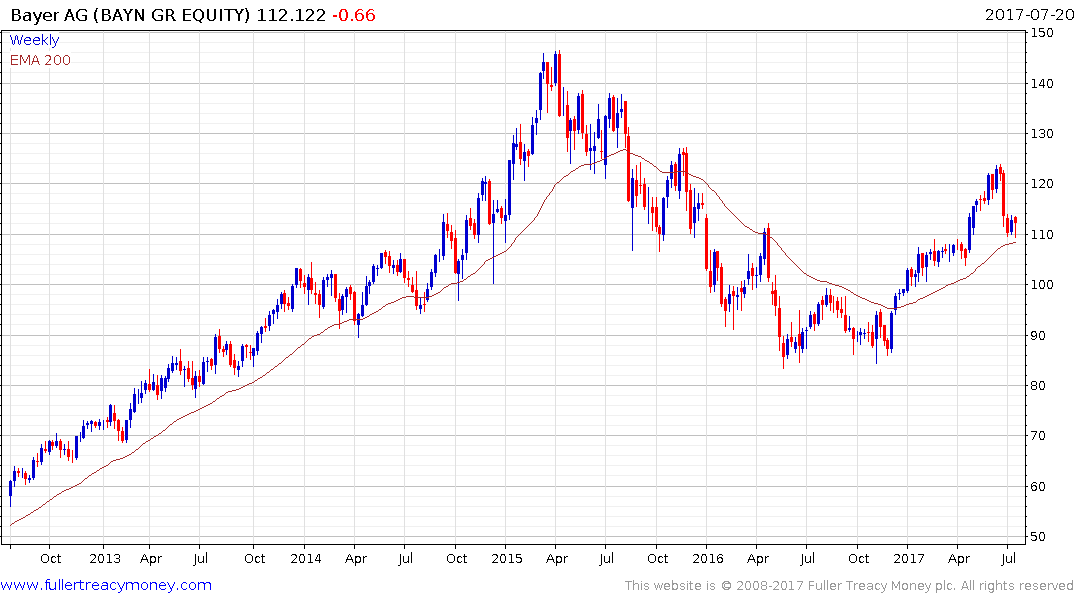Email of the day on genetically modified foods
Hope you’re hale and hearty.
You will recall we had a brief chat on GMO foods at lunch during the recent Chart Seminar in Singapore.
I recall you disagreed with my views on GMO science.
Here is a video on the subject. It is very much science based. Hope you can spare some time off your busy schedule to watch it. I think you will appreciate it.
Thank you for this email and I have been ruminating on that conversation since April. Few topics get people more riled up than politics, religion, abortion, climate change and genetically modified foods. There are strong beliefs held by protagonists on both sides of the argument and I reached out to David Brown who I thought might have a scientist’s perspective on the question:
Here is what he had to say:
I don't get hot under the collar about GM from a personal health point of view. The fanatics usually have zero understanding of the science. GM is little different from 'natural breeding' in that it eventually selects for the best genes. GM just speeds up the process. Developing countries could not feed themselves without GM so the opponents basically want people to starve. Would they be anti if it was them starving? So, it's a rich person’s hobby to complain about GM.
My only concern is if we lose diversity in the environment long term. The anti-GMers do have a good case there. But that is not a health issue regarding food choice.
I was at a conference in Cairo about 10 years ago attending for my work trying to reduce child deaths from diarrhoeal diseases (about 2 million pa then, now 1.3 million pa). Out of interest I went to a parallel session on GM crops. I only remember one comment made there. A scientist from South America said the emerging countries are very happy that 'advanced' countries are rejecting GM, because they can lead the technology development and eventually export it back to us.
I would be more concerned about growth promoters and antibiotics given to animals and the bi-products in meat a milk and butter, which is a much worse issue in the USA than in Europe. I try to avoid factory-farmed fish. I avoid meat unless it is naturally grass-fed (lamb usually) and for butter I use Kerrygold from Ireland. Also, I eat mostly goats cheese for the same reason. I like it anyway. The omega fat balance is much better in grass fed animals.
Personally, I had a wake-up call 18 months ago when I went for my annual check-up and my doctor told me my cholesterol was at levels suggesting a statin was appropriate and that my 8-year old daughter was obese. The whole family had put on weight since we arrived in the USA and it was time for a rethink of our regime. I read “Ending the Food Fight” by David Ludwig which is about the best no nonsense book on nutrition I’ve come across. Since employing the system he advocates consistently for the last 18 months I’ve dropped 42lbs and everyone in the family has a normal body mass index.
The reality is there is entirely too much salt, sugar and saturated fats in the modern diet. I agree loading up on fruits and vegetables and reducing intake of processed sugars, not least in the form of carbohydrates, are sound arguments for a health lifestyle. Avocados, walnuts, fish oil etc. also help to tip the fat balance in favour of the good stuff. I truly believe these are important points while the role of genetically modified foods pales in comparison.
Nevertheless, from an investment perspective the growing antipathy against the sector is a consideration but the chart patterns suggest emerging market growth is more than making up the difference.

Monsanto has been ranging below $120 since 2008 and is currently retesting that level. A sustained move above it would confirm a return to medium-term demand dominance.

DuPont De Nemours broke out to new all-time highs in January and continues to extend the breakout.

Syngenta has been trending higher in a jerky manner for more than a decade and process of mean reversion is now underway.

The EU has a ban on genetically modified seeds so companies, like Bayer, use radiation to force mutation to get seeds with the traits they require instead. The share rallied to break a medium-term downtrend in December and a process of mean reversion has been underway over the last month. It is now testing the region of the trend mean and will need to find support soon if the benefit of the doubt is to be given to the upside.


